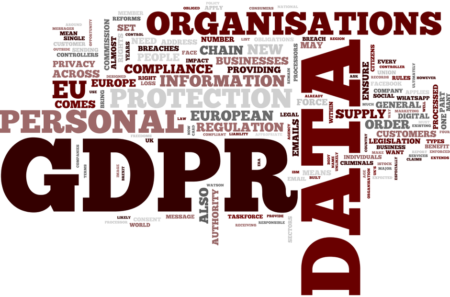Enterprise integrations needs Vs GDPR policy to protect and safeguard customer data.
Enterprises need to ensure a framework is built into the architecture to the needs of increasing need GDPR policy to protect and safeguard customer data.
Customer Data protection and privacy has become a topic of global significance, with high profile incidents involving both businesses and governments. As a result, there is an increasing need for a unified data protection policy.
New rules and legislation concerning the collection, storage and processing of personal information relating to individuals in the European Union (EU), also known as General Data Protection Regulation (GDPR), will come into effect.
The most important change in data privacy regulation in 20 years, the GDPR is a legal framework setting guidelines for the collection and processing of personal information of individuals in the European Union. With GPDR there are specific requirements for transparency of how companies manage their customers’ personal data. In addition to European companies, American and international companies with an EU customer base must comply. The Brexit vote does not mean UK businesses are exempt from GDPR, and they should prepare accordingly.
Companies who fail to comply, can suffer significant consequences, resulting in up to €20m, or 4 per cent of a company’s annual turnover which when calculated at the group level for multinationals could add up to huge penalties.
Find all architectural layers which deals with customer data:
The first step for compliance is taking a full inventory of wherever customer data appears in your enterprise such as data transformation services, service logs, business audit reports, databases etc.
CRM database, which is the obviously first place to look, the data could also reside in marketing automation, lead management, customer support, financial and field service systems. In addition, personal information can be stored as unstructured data in social media posts, emails, calendars, voice recordings and spreadsheets, and other sources.
Systems and Application, which may or may not use the same CRM systems.
Cloud infrastructures – Third party cloud services, desktops, VM’s, or even file shares in publicly available parts of a network.
Enforcing GDPR
There are several different integration tools that can help create an audit trail across the entire customer data in the enterprise systems.
Integration tools & platforms can provide the ability to find and then integrate data from different vendors, locations, and devices.
Sometimes, low-code development environments enable employees who are not well-experienced programmers to get involved with this integration process, which is even more essential as increasingly more and more departments and business functions within the organization are the ones responsible for collecting, consuming, and analyzing their data.
Identify each instance of customer data, additional business processes involved with documenting a customer’s complicity with storing their data need to be put in place.
All forms that capture customer data must be integrated fully with the back-end systems to ensure compliance by tracking every instance of where the data is shared and stored.
The entire process of lead generation also needs to be tracked. For example, contact creation through your CRM system will need to go through an ‘opt-in’ process rather than just be included automatically into marketing contact databases. The same applies for contact information collected at industry events and when you receive contacts from a third party.
These requirements also need to be enforced for channel partners. Does a partner have authority to share contact information with a manufacturer? If yes, the appropriate and proper procedures for opt-in needs to be followed and documented.
These rules also apply to previous and existing customers. All personal details have to be deleted. You can’t simply mark “do not contact” in your CRM database. The data needs to be erased in all systems where it appears.
Finally Enterprises are held responsible for ensuring that any data you store is accurate and up to date
The digital economy is built on the collection and exchange of data, including large amounts that consist of personal sensitive data. Moving ahead with innovation requires public confidence in the protection of this information. Complying with GPDR will require a business-led approach that looks at the whole business model and how these requirements come into play.
It’s never too soon to begin finding all the sources of customer data, wherever that may be and starting your GDPR compliance journey.
At last, If you are looking for consultants and systems integration experts who understands the GDPR and architectural frameworks, Genysoft is to consider for all your needs of GDPR in integration space.
We are integration experts have been working with large scale integration projects. We have vast experience working on multiple middleware integration tools products, which is a very unique combination of skills that we are very proud of. Be it is On-premise or Cloud, Proprietary or Open source, Frameworks or Integration Suites we have expertise.
We recognize that each customer integration project is unique and we understand your integration puzzles and we apply our expertise to solve them. Our delivery methodology ensures scalable, cost effective integration solutions to your problems.
Please Write to Us

